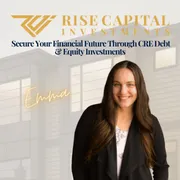Retoro Capital Articles To Educate And Inspire

Stop Trying to Predict Markets: Here’s What Actually Works
"Wealth isn’t built on market predictions, it’s built on disciplined strategy and time-tested fundamentals."
Retoro Capital Investments
Fancy Fiction Doesn’t Build Wealth, Good Strategies Do
Every year, a new headline promises insight into what the market will do next. Inflation. Recession. Rate cuts. Booms and busts. And every year, most of those predictions turn out to be wrong—or at least, not useful.
If you’re investing based on forecasts, it’s worth asking: how often are those predictions right? What does the data say about the people who try to time the market?
❌ Spoiler: not much. In fact, the stats say most of the “smart money” doesn’t outperform a boring, low-fee index fund over time.
Crystal ball gazers don't have lot of returns to back it up.
Here’s why your investment strategy shouldn’t rely on market forecasts, and what to do instead.
1. Hedge Funds Rarely Beat the S&P 500
Let’s start with the experts: hedge funds. These firms are known for sophisticated strategies and market-timing models. But according to SPIVA and other studies, over 80% of active managers underperform the S&P 500 over a 5-year period. (SPIVA Scorecard, S&P Global)
Even Warren Buffett put this to the test. In 2008, he bet $1 million that a simple S&P 500 index fund would outperform a basket of hedge funds over 10 years. He won handily—125.8% vs. 36%. (Investopedia)
Why can't they consistently beat this simple index? High fees such as 2% of assets and 20% of profits make it hard to keep up.
Plus, their predictions just aren’t that good, basically a 50/50 coin toss. Turns out, complicated strategies don’t beat simple ones over time.

SPIVA scorecard visualized
2. Venture Capital Is Hit or Miss
Yes, venture capital creates massive wins such as Uber, Airbnb, etc, but those wins are rare. Only the top 25% of VC funds consistently outperform public markets. (Cambridge Associates)
In 2023, the Cambridge VC Index returned –3.4% while the S&P 500 had strong double-digit gains.
A few big hits make headlines, but most deals won’t deliver. Without access to elite funds with high minimums, the odds aren’t great.

3. Predictions Are No Better Than a Coin Toss
A major study analyzed 6,582 stock market predictions from 68 experts. The result? Average accuracy was 47.4%, basically a coin flip. (CXO Advisory Group)
Recession predictions are even worse. A famous IMF paper noted that economists have failed to predict nearly every major recession. (International Monetary Fund)
In other words, smart people with lots of data are still wrong most of the time.

4. Trend-Following Only Works... Until It Doesn’t
The famous Turtle Traders experiment in the 1980s used a trend-following system that posted 80% annual returns for a few years. But as more traders adopted it, the edge disappeared.
Trend strategies rely on short bursts of success, followed by long stretches of underperformance. They’re volatile, require constant oversight meaning they are not passive, and active trend followers must continually update or lose their edge as markets evolve.
5. Fund Managers Win on Fees, Not Returns
If most funds underperform, how do managers make money? Easy: they get paid whether you make money or not.
Many funds survive on marketing alone. A few good years bring in investor cash, but performance usually fades. Meanwhile, fees keep flowing. Even worse, many poor-performing funds are shut down, hiding the full picture through survivorship bias. (Morningstar)
One brutal truth in my opinion: trading fund managers are often wealthy because of assets under management fees (AUM), not investment skill.
According to Forbes, "Even the best are frequently wrong. A 60% batting average would qualify for the Investing Hall of Fame."
Legendary often didn’t build their immense wealth from trading: they built and managed businesses exceptionally well. The core of their investment success is grounded in disciplined business management and ownership, not timing the market. Some run successful underlying businesses such, and some run funds that consistently underperform 5 and 10-year index fund returns, but are successful at attracting capital and charging AUM fees. (The Fund by Rob Cohen)
6. Predicting the Future Is a Red Flag
There’s a reason the SEC and FINRA warn investors to be cautious of advisors or fund managers who make bold market predictions. Studies show that individuals or firms claiming to foresee market trends are not only unreliable—they may be engaging in misleading practices. (SEC Investor Bulletin)
Of course, there are several reputable managers do beat the market consistently over 5 and 10 year periods. But they usually have one thing in common: a long, transparent track record built on sound management, not flashy predictions or cherry-picked short-term performance.

While the SEC and FINRA put out a lot of information on avoiding fraud and scams, it's up to use to recognize long-term performance from the sea of legitimate options available.
If someone spends more time explaining the next geopolitical crisis than their actual investment thesis, take a step back. Informed investors value experience, not clairvoyance.
7. Private Markets Can Outperform—But It’s Not Set and Forget
Historically, private markets have outperformed public markets. Pitchbook benchmarks show that private equity has outperformed the S&P 500 over the long term. (FS Investments)

On the flipside, there’s no private market index fund equivalent to the S&P 500. Private investments are illiquid and require hands-on due diligence similar to choosing single stocks. Even institutional investors often struggle to access enough top-tier deals to replicate the extensive public market diversification available through index funds.
Without the ability to “index” broadly and with higher minimums, investors must rely on fewer deals and deeper vetting. That means private investing takes more up front homework and carries more capital risk especially if investors don’t know understand the underlying business or can't diversify enough.
This is why I personally choose to more actively manage my private market portfolio to maximize potential returns, with a more "set and forget" index fund approach to my publicly-traded securities. Both investment strategies rely on compounding to boost my average returns by minimally withdrawing according to a budget such as the 4% rule for living expenses to maintain portfolio performances and allow long-term recovery from short-term downturns.
8. How We Diversify at Retoro Capital Investments
A major part of my own private investing is with Retoro Capital Investments where we specialize in narrow slices of private investing as part of a diversification strategy: short-term, first-lien real estate debt in markets we know well like Salt Lake City UT. This is the core of our fund strategy and where we actively manage a business.
We also offer occasional equity deals to provide exposure to long-term appreciation and tax benefits like depreciation. Our fund is designed to mirror the strategy we use in our own early retirement portfolios: a strong base of reliable income from debt, with a smaller slice of equity for upside and tax planning.
Seven-figure investors can use us as a high-yield cash alternative, targeting 12% annual returns, which can compound up to 15%+ IRR if gains are reinvested over five years. Additional capital invested in many other private securities round out a passive income strategy.
For $50k+ investors earning 10% APR: We offer diversification through direct exposure to Salt Lake City real estate, managed by a seasoned team with deep local roots. Again, compounding can boost APY/IRR returns.
We’re not investment advisors, we're just private fund managers who run an investing business with our own and investor capital to get deals done. We rely on specific market knowledge in our niche and educate our investors enough they can make an informed decision if our fund is a good fit for their financial goals.
We're not trying to predict what the market will do next quarter or even next year. We’re just doing what we’ve always done: lend responsibly, manage risk, pay attention to macro and micro trends to avoid pitfalls, and help investors earn boring, steady returns as part of a long-term plan.

Diversify your portfolio at Retoro with customized deal selection to fit your unique financial goals.
Want help building a passive income strategy based on boring, reliable returns? Join our accredited investor portal and see what we’re working on.
🔗 investor.avestorinc.com/retorocapital
What Do We Actually Do?
📌 Fundamentals-based investing. Own assets with real earnings and growth potential.
📌 Diversification. Spread your money across geographies, asset classes, and risk levels.
📌 Low costs. Index funds often beat high-fee funds. Even in private markets, fees matter.
📌 Long-term holding. Avoid reacting to headlines. Let time and compounding do their work.
📌 Know your lane. Be active in what you understand. Be passive in everything else.
If you're in the game for long-term financial freedom, you don’t need a crystal ball. You need patience, good management, and a strategy that doesn’t rely on getting lucky.

